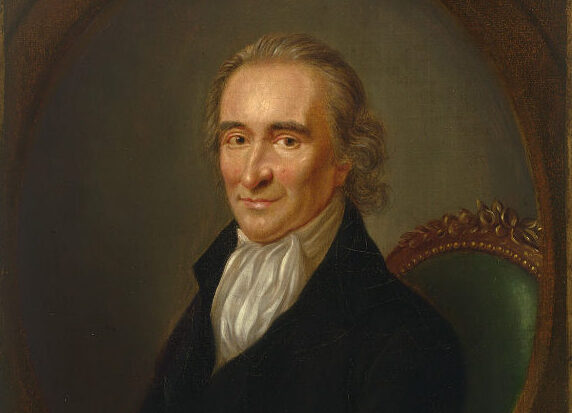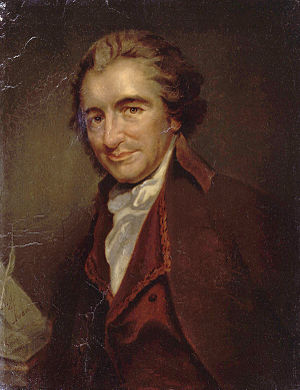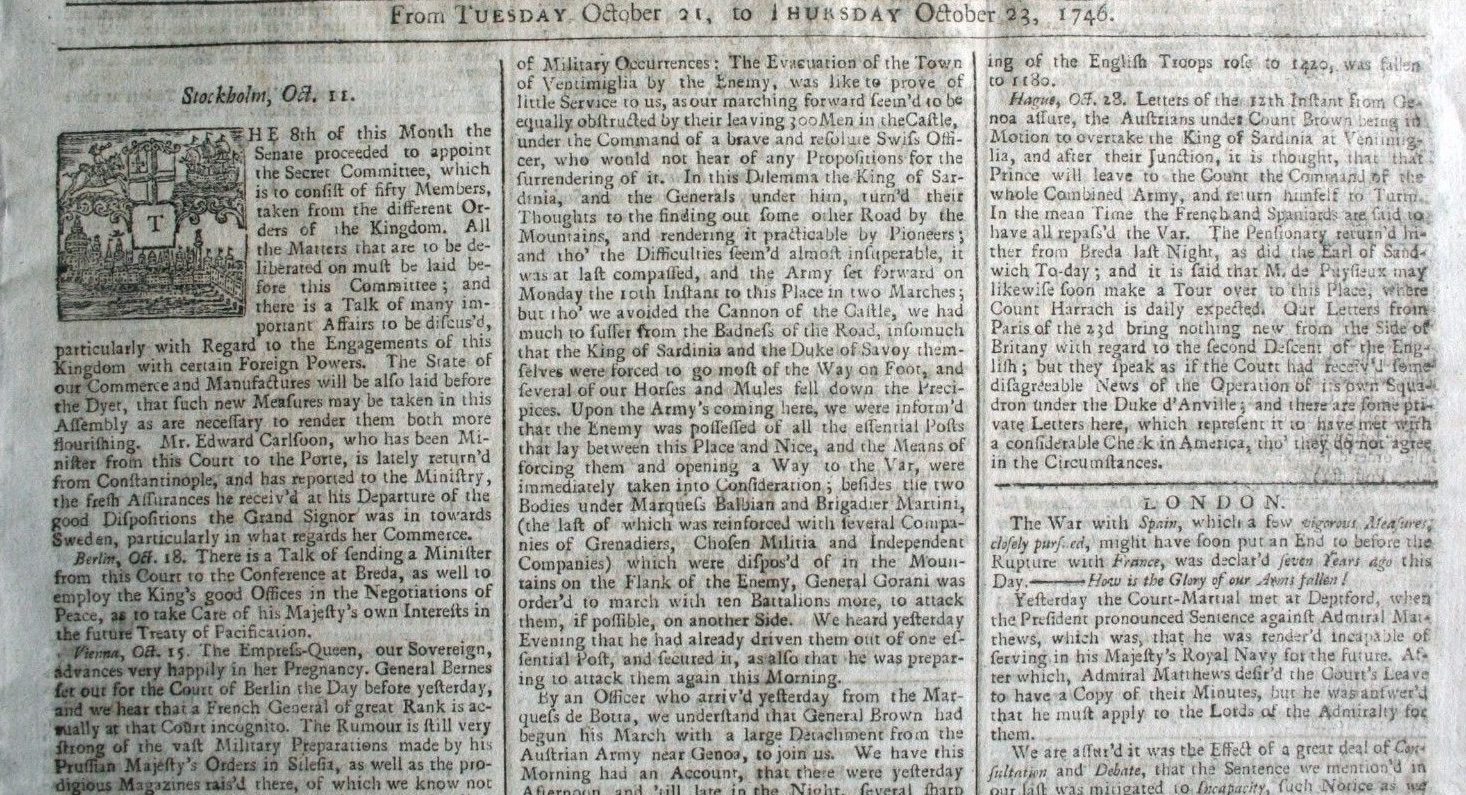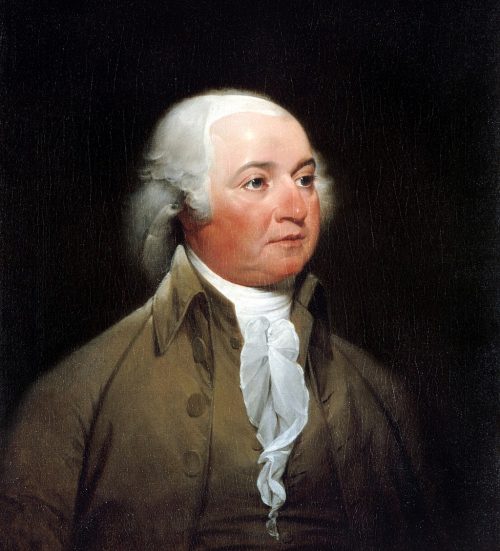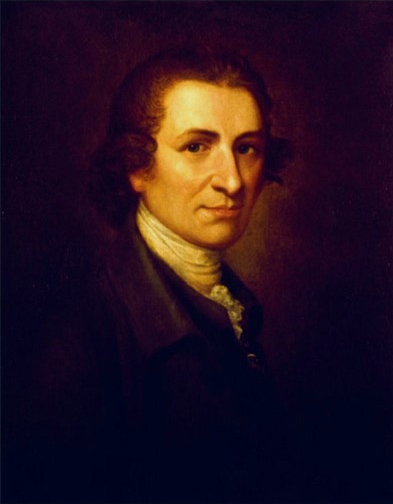 On January 10, 1776, an obscure immigrant published a small pamphlet that ignited independence in America and shifted the political landscape of the patriot movement from reform within the British imperial system to independence from it. One hundred twenty thousand copies sold in the first three months in a nation of three million people, making Common Sense the best-selling printed work by a single author in American history up to that time. Never before had a personally written work appealed to all classes of colonists. Never before had a pamphlet been written in an inspiring style so accessible to the “common” folk of America.
On January 10, 1776, an obscure immigrant published a small pamphlet that ignited independence in America and shifted the political landscape of the patriot movement from reform within the British imperial system to independence from it. One hundred twenty thousand copies sold in the first three months in a nation of three million people, making Common Sense the best-selling printed work by a single author in American history up to that time. Never before had a personally written work appealed to all classes of colonists. Never before had a pamphlet been written in an inspiring style so accessible to the “common” folk of America.
Common Sense made a clear case for independence and directly attacked the political, economic, and ideological obstacles to achieving it. Paine relentlessly insisted that British rule was responsible for nearly every problem in colonial society and that the 1770s crisis could only be resolved by colonial independence. That goal, he maintained, could only be achieved through unified action. Hard-nosed political logic demanded the creation of an American nation. Implicitly acknowledging the hold that tradition and deference had on the colonial mind, Paine also launched an assault on both the premises behind the British government and on the legitimacy of monarchy and hereditary power in general. Challenging the King’s paternal authority in the harshest terms, he mocked royal actions in America and declared that “even brutes do not devour their young, nor savages make war upon their own families.” Finally, Paine detailed in the most graphic, compelling and recognizable terms the suffering that the colonies had endured, reminding his readers of the torment and trauma that British policy had inflicted upon them.
In addition to the audacity and timeliness of its ideas, Common Sense compelled the American people because it resonated with their firm belief in liberty and determined opposition to injustice. The message was powerful because it was written in relatively blunt language that colonists of different backgrounds could understand. Paine, despite his immigrant status, was on familiar terms with the popular classes in America and the taverns, workshops, and street corners they frequented. His writing was replete with the kind of popular and religious references they readily grasped and appreciated. His strident indignation reflected the anger that was rising in the American body politic. His words united elite and popular strands of revolt, welding the Congress and the street into a common purpose. As historian Scott Liell argues in Thomas Paine, Common Sense, and the Turning Point to Independence: “[B]y including all of the colonists in the discussion that would determine their future, Common Sense became not just a critical step in the journey toward American independence but also an important artifact in the foundation of American democracy” (20).
Below is a collection of resources recognizing Thomas Paine and Common Sense‘s revolutionary call to action. Browse these resources or jump from section to section by clicking the links below:
From Common Sense
1776
…But where says some is the King of America? I’ll tell you Friend, he reigns above, and doth not make havoc of mankind like the Royal Brute of Britain. Yet that we may not appear to be defective even in earthly honors, let a day be solemnly set apart for proclaiming the charter; let it be brought forth placed on the divine law, the word of God; let a crown be placed thereon, by which the world may know, that so far as we approve of monarchy, that in America the law is king. For as in absolute governments the King is law, so in free countries the law ought to be King; and there ought to be no other. But lest any ill use should afterwards arise, let the crown at the conclusion of the ceremony be demolished, and scattered among the people whose right it is.
A government of our own is our natural right: And when a man seriously reflects on the precariousness of human affairs, he will become convinced, that it is infinitely wiser and safer, to form a constitution of our own in a cool deliberate manner, while we have it in our power, than to trust such an interesting event to time and chance. If we omit it now, some Massanello may hereafter arise, who laying hold of popular disquietudes, may collect together the desperate and the discontented, and by assuming to themselves the powers of government, may sweep away the liberties of the continent like a deluge. Should the government of America return again into the hands of Britain, the tottering situation of things, will be a temptation for some desperate adventurer to try his fortune; and in such a case, what relief can Britain give? Ere she could hear the news, the fatal business might be done; and ourselves suffering like the wretched Britons under the oppression of the Conqueror. Ye that oppose independance now, ye know not what ye do; ye are opening a door to eternal tyranny, by keeping vacant the seat of government.
…The present time, likewise, is that peculiar time, which never happens to a nation but once, viz. the time of forming itself into a government. Most nations have let slip the opportunity, and by that means have been compelled to receive laws from their conquerors, instead of making laws for themselves. First, they had a king, and then a form of government; whereas, the articles or charter of government, should be formed first, and men delegated to execute them afterward: but from the errors of other nations, let us learn wisdom, and lay hold of the present opportunity—To begin government at the right end…
Selected online resources on Thomas Paine and Common Sense:
Yuval Levin on the Great Debate: Edmund Burke, Thomas Paine, and the Birth of Right and Left
 The Complete Writings of Thomas Paine
The Complete Writings of Thomas Paine
Project Gutenberg provides the compilation of Thomas Paine’s writings online, including Common Sense, The American Crisis, Rights of Man, and the controversial The Age of Reason. Shorter pieces include private letters to Thomas Jefferson and a letter criticizing the American government and George Washington.
Read Paine’s writings at Project Gutenberg >>
 Thomas Paine Friends, Inc.
Thomas Paine Friends, Inc.
Thomas Paine Friends, Inc., an association dedicated to an increased public awareness of Paine’s political contributions, provides several articles and resources for further reading on this lesser known founder.
Explore the organization’s reading guide >>
 Jon Katz on Paine’s Life and Influence on Journalism
Jon Katz on Paine’s Life and Influence on Journalism
In an article for Wired, Jon Katz provides a narrative of Thomas Paine’s life and argues that Paine should be recognized as the moral father of the internet and a pioneer of journalism.
Read the “The Age of Paine” at Wired >>
 John Adams on Thomas Paine
John Adams on Thomas Paine
Although Common Sense proved to be an influential piece of American political thought, John Adams did not think much of it, nor of its author: “The Arguments in favour of Independence I liked very well: but one third of the Book was filled with Arguments from the old Testiment, to prove the Unlawfulness of Monarchy, and another Third, in planning a form of Government, for the seperate States in One Assembly, and for the United States, in a Congress.”
Read more from John Adams’s autobiography at the National Archives >>
 How The American Crisis Saved the Revolution
How The American Crisis Saved the Revolution
Common Sense may be the best-known of Paine’s writings, but another of his pamphlets, The American Crisis, was critical in rallying the patriots to a victory at Trenton in late 1776. Paine’s The American Crisis contains the famous quote: “These are the times that try men’s souls: The summer soldier and the sunshine patriot will, in this crisis, shrink from the service of their country; but he that stands it now, deserves the love and thanks of man and woman. Tyranny, like Hell, is not easily conquered; yet we have this consolation with us, that the harder the conflict, the more glorious the triumph.”
Read about The American Crisis at the National Constitution Center website >>
*If you are a JMC fellow who’s published on Thomas Paine or Common Sense and its history and development, and would like your work included here, send it to us at academics@gojmc.org.
Commentary and articles from JMC fellows:
Common Sense and the Political Thought of Thomas Paine
 Seth Cotlar, “Thomas Paine in the Atlantic Historical Imagination.” (Paine and Jefferson in the Age of Revolutions, University of Virginia Press, 2013)
Seth Cotlar, “Thomas Paine in the Atlantic Historical Imagination.” (Paine and Jefferson in the Age of Revolutions, University of Virginia Press, 2013)
Seth Cotlar, Tom Paine’s America: The Rise and Fall of Trans-Atlantic Radicalism in the Early Republic. (University of Virginia Press, 2011)
Seth Cotlar, “Tom Paine’s Readers and the Making of Democratic Citizens in the Age of Revolutions.” (Thomas Paine: Common Sense for the Modern Era, San Diego State University Press, 2007)
Armin Mattes, “Paine, Jefferson, and the Modern Ideas of Democracy and the Nation.” (Paine and Jefferson in the Age of Revolutions, University of Virginia Press, 2013)
Eric Nelson, “Hebraism and the Republican Turn of 1776: A Contemporary Account of the Debate over Common Sense.” (The William and Mary Quarterly 70.4, October 2013)
 Peter Onuf (editor), Paine and Jefferson in the Age of Revolutions. (University of Virginia Press, 2014)
Peter Onuf (editor), Paine and Jefferson in the Age of Revolutions. (University of Virginia Press, 2014)
William Parsons, “Of Monarchs and Majorities: Thomas Paine’s Problematic and Prescient Critique of the U.S. Constitution.” (Perspectives on Political Science 43.2, 2014)
Gordon Wood, “The Radicalism of Thomas Jefferson and Thomas Paine Considered.” (Paine and Jefferson in the Age of Revolutions, University of Virginia Press, 2013)
Michael Zuckert, “Two paths from Revolution: Jefferson, Paine and the Radicalization of Enlightenment Thought.” (Paine and Jefferson in the Age of Revolutions, University of Virginia Press, 2013)
*If you are a JMC fellow who’s published on Thomas Paine or Common Sense and its history and development, and would like your work included here, send it to us at academics@gojmc.org.
![]()
![]() Follow us on Facebook and Twitter for updates about lectures, publications, podcasts, and events related to American political thought, United States history, and the Western tradition!
Follow us on Facebook and Twitter for updates about lectures, publications, podcasts, and events related to American political thought, United States history, and the Western tradition!
Want to help the Jack Miller Center transform higher education? Donate today.
